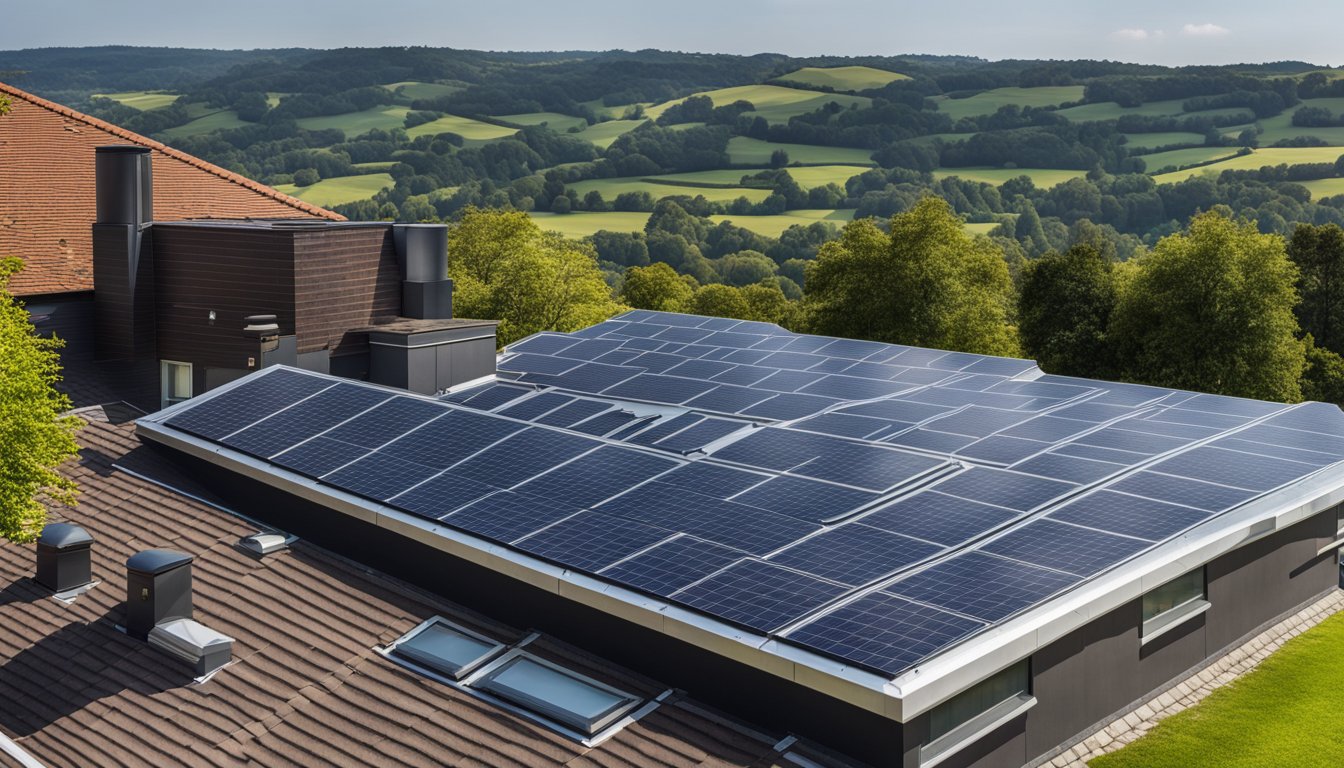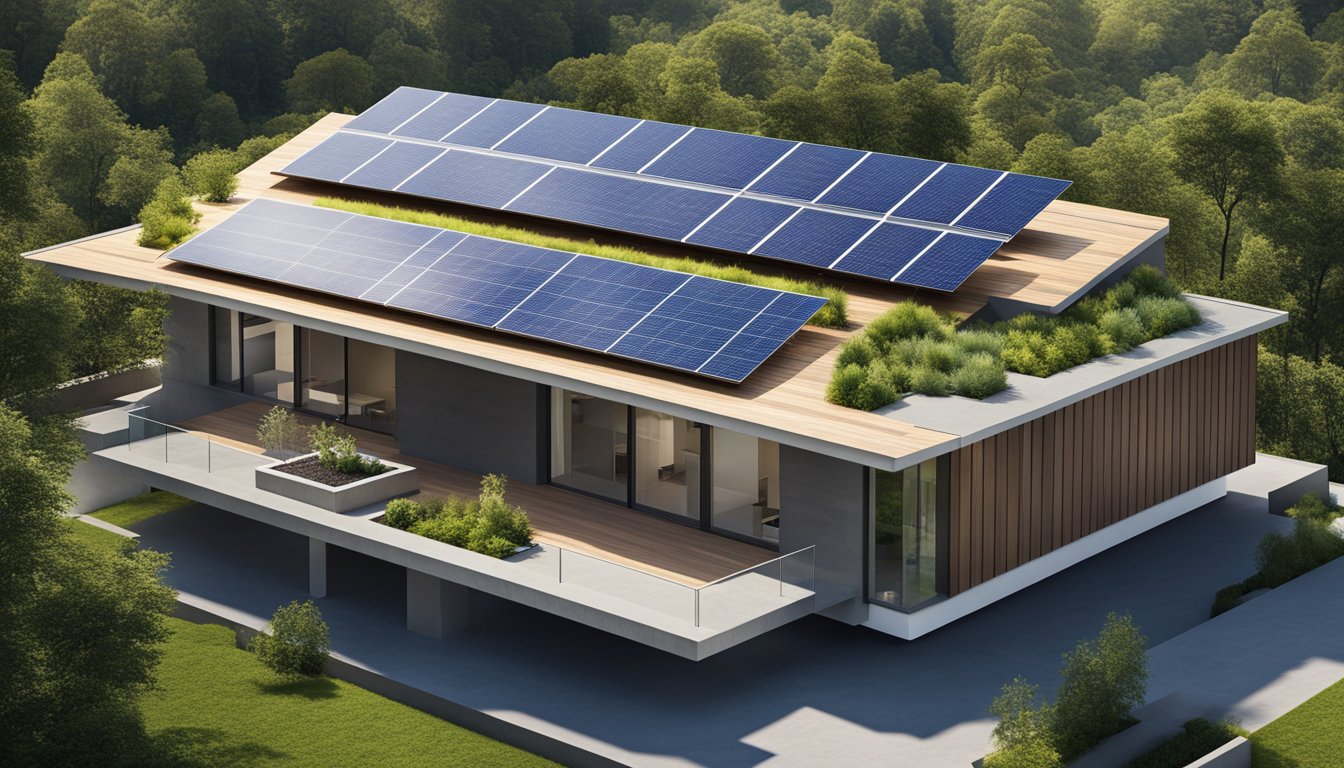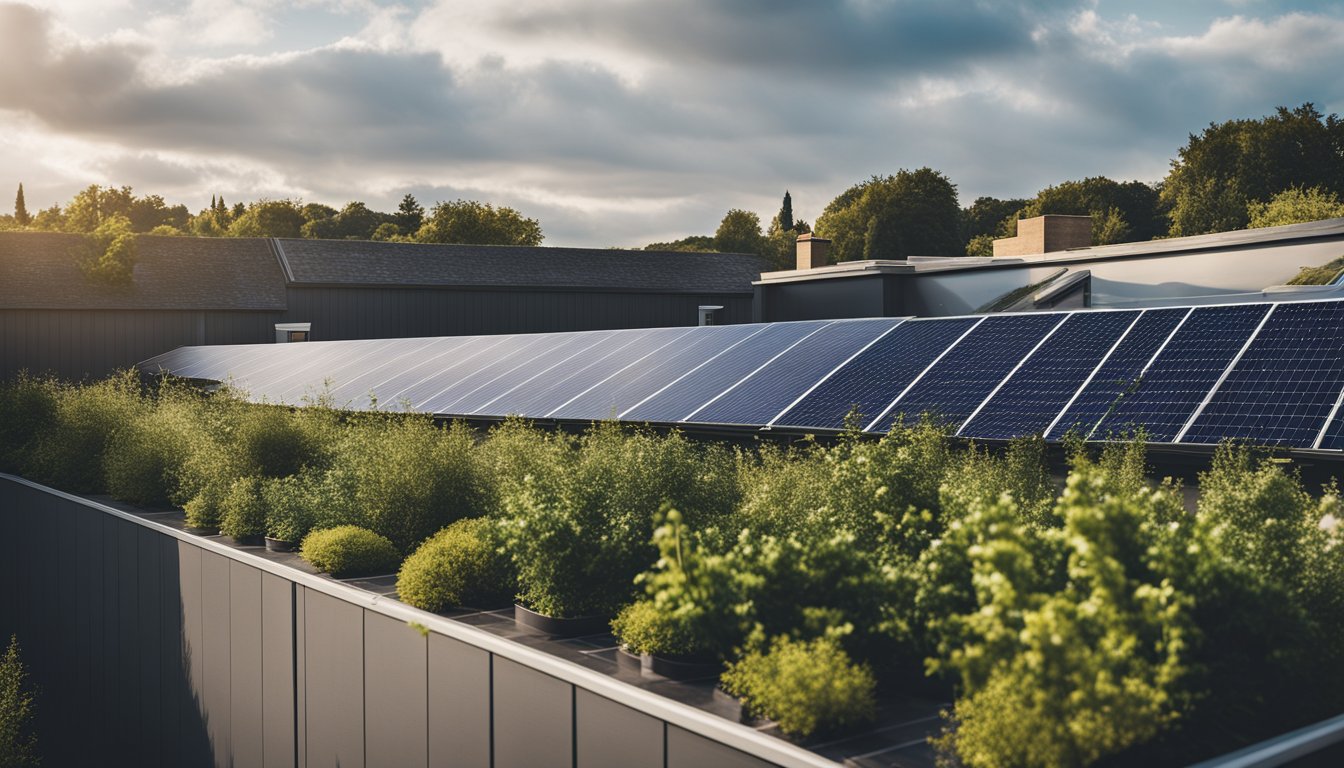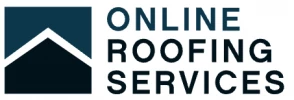Late updated: 02 Jan 2025 12:01
Written by: Oliver Bennett
Modern Roofing Trends in the UK for 2024: Innovations and Aesthetics
The roofing industry in the UK is undergoing remarkable transformations in 2024. As we explore the latest trends influencing roof design and construction, we see a strong emphasis on sustainability, technological advancements, and aesthetic innovation. Eco-friendly materials and energy-efficient solutions are becoming essential choices for homeowners and builders alike. This shift not only reflects growing environmental awareness but also enhances the functionality and durability of modern roofs.

Our focus includes innovations such as smart roofing technologies and the integration of renewable energy sources, including solar panels. These advances enhance our ability to create roofs that are not only visually appealing but also technologically forward-thinking. In addition, the colour palette trends have evolved, with cool, neutral shades becoming the preferred choice for those aiming for a sleek, modern look.
Navigating these trends can be a daunting task, but staying informed is key to harnessing their benefits. By understanding what modern roofing offers, we can make the best decisions for our homes and businesses, ensuring that our investments stand the test of time while contributing to a sustainable future.
Key Takeaways
- Modern roofs focus on eco-friendliness and energy efficiency.
- Smart technologies and solar integration are key trends.
- Cool neutrals dominate current colour preferences.
Innovations in Roofing Technology and Materials
Innovations in roofing are transforming how we view and utilise roofing systems. The focus is on sustainable materials that offer both performance and environmental benefits, alongside smart technologies that integrate seamlessly with our homes.
Advancements in Sustainable Roofing Materials
Sustainable roofing materials are leading the charge in innovation. One of the most promising developments is solar shingles, which combine energy generation with sleek design. Unlike traditional solar panels, these shingles integrate directly with roofing materials. This creates a seamless appearance while generating power.
We are also seeing a rise in green roofs, which incorporate vegetation into roofing. Green roofs improve insulation, reduce urban heat, and support biodiversity. Additionally, synthetic slate made from recycled materials presents a durable and eco-friendly option, mimicking the appearance of natural slate without the environmental cost.
Moreover, sustainable materials like reclaimed wood and recycled rubber are being repurposed into roofing products, addressing waste issues while providing long-lasting solutions. As demand increases, more homeowners seek these environmentally friendly options that contribute positively to both aesthetics and sustainability.
The Rise of Smart Roofing Technologies
Smart technology is reshaping roofing systems, introducing features that enhance both functionality and safety. Smart roofs utilise connected sensors to monitor roof conditions, alerting us to issues such as leaks or excess snow loads before they become significant problems.
Innovative technologies including drone assessments allow for efficient roof inspections, identifying potential issues without the need for direct human intervention. This not only reduces labour costs but also increases safety by eliminating the need for physical inspection.
Solar tiles are another key innovation, integrating photovoltaic cells within the roofing material. This provides energy efficiency without compromising the home's aesthetic. As smart technologies advance, they offer unparalleled convenience and peace of mind by enabling proactive maintenance and energy savings.
Impact of Roofing on Sustainability and Efficiency

In 2024, roofing innovations in the UK continue to significantly improve sustainability and energy efficiency. Utilising cutting-edge materials and designs, these modern solutions address environmental concerns while providing economic benefits through energy savings and increased durability.
Enhancing Energy Efficiency through Modern Roofing
Energy consumption reduction is a critical focus of contemporary roofing. Cool roofs, with their reflective surfaces and coating, keep buildings cooler by reflecting more sunlight and absorbing less heat. This results in long-term savings on cooling costs, benefitting both occupants and the environment.
Smart roofs incorporating sensors offer real-time data on temperature changes and weather conditions. This technology helps us optimise energy usage by adjusting insulation and ventilation based on current needs. Enhancing these systems with sustainable roofing materials improves energy efficiency even further.
Advanced insulation techniques play a pivotal role. By enhancing thermal resistance, modern roofing systems effectively minimise heat transfer, leading to decreased energy demands. Such improvements enable us to lower carbon emissions, aligning with broader climate goals.
Mitigating Environmental Impact with Eco-Friendly Options
Using eco-friendly roofs significantly mitigates the environmental impact of buildings. Materials like recycled metals and sustainably sourced components reduce resource depletion while providing robust, durable solutions. Many of these materials can be reclaimed or recycled at the end of their lifespan, reducing landfill waste.
Incorporating plant-based layers or green roofs fosters natural biodiversity and helps us combat climate change. These systems enhance air quality and offer valuable insulation properties. By acting as natural barriers, they improve a building's thermal performance, promoting sustainable practices.
Selecting roofing materials with long-lasting durability is essential for reducing the need for frequent replacements. Such choices diminish resource consumption and contribute to a lower overall environmental footprint. Through our efforts, these approaches pave the way for a more sustainable future in construction.
Frequently Asked Questions

In 2024, the roofing sector in the UK has become increasingly dynamic. Sustainable materials, energy-efficient technologies, and innovative designs have emerged as significant trends. Here's what you need to know about these developments.
What are the leading sustainable roofing materials in use for 2024?
Sustainable roofing has gained prominence with options like recycled shingles, green roofs, and solar tiles. Recycled shingles help in reducing waste, while green roofs promote biodiversity. Solar tiles seamlessly integrate into roofs, harnessing energy without compromising aesthetics.
How has roof technology advanced in terms of energy efficiency this year?
Energy-efficient roof technologies have advanced with improvements in insulation and smart systems. Enhanced thermal insulation reduces energy costs by maintaining temperature control. Smart systems monitor energy use, helping homeowners optimise consumption and savings.
What design aesthetics are dominating residential roofing projects currently?
Contemporary roofs now favour bold, geometric shapes and diverse textures. Cool neutrals, particularly shades of grey, remain popular, offering a sleek, modern appearance. Architects often incorporate multiple planes and atypical shapes, such as butterfly and barrel roofs, to elevate curb appeal.
Which flat-roof systems are proving most popular in commercial buildings?
For commercial buildings, EPDM and TPO membranes are leading flat-roof systems due to their durability and ease of installation. They provide excellent weather resistance, minimal maintenance, and energy efficiency through reflective surfaces.
Can you detail the maintenance advantages of the latest roofing systems?
Modern roofing systems tout reduced maintenance needs through durable materials and self-cleaning technologies. Coatings that resist dirt and algae minimise upkeep, while robust materials withstand harsh weather conditions, extending the lifespan of the roof.
What impact have recent building regulations had on roofing practices?
Recent building regulations have emphasised energy efficiency and sustainability. Requirements now often include the use of eco-friendly materials and increased insulation standards. These changes drive innovation and adaptation in roofing practices, ensuring compliance and environmental responsibility.
